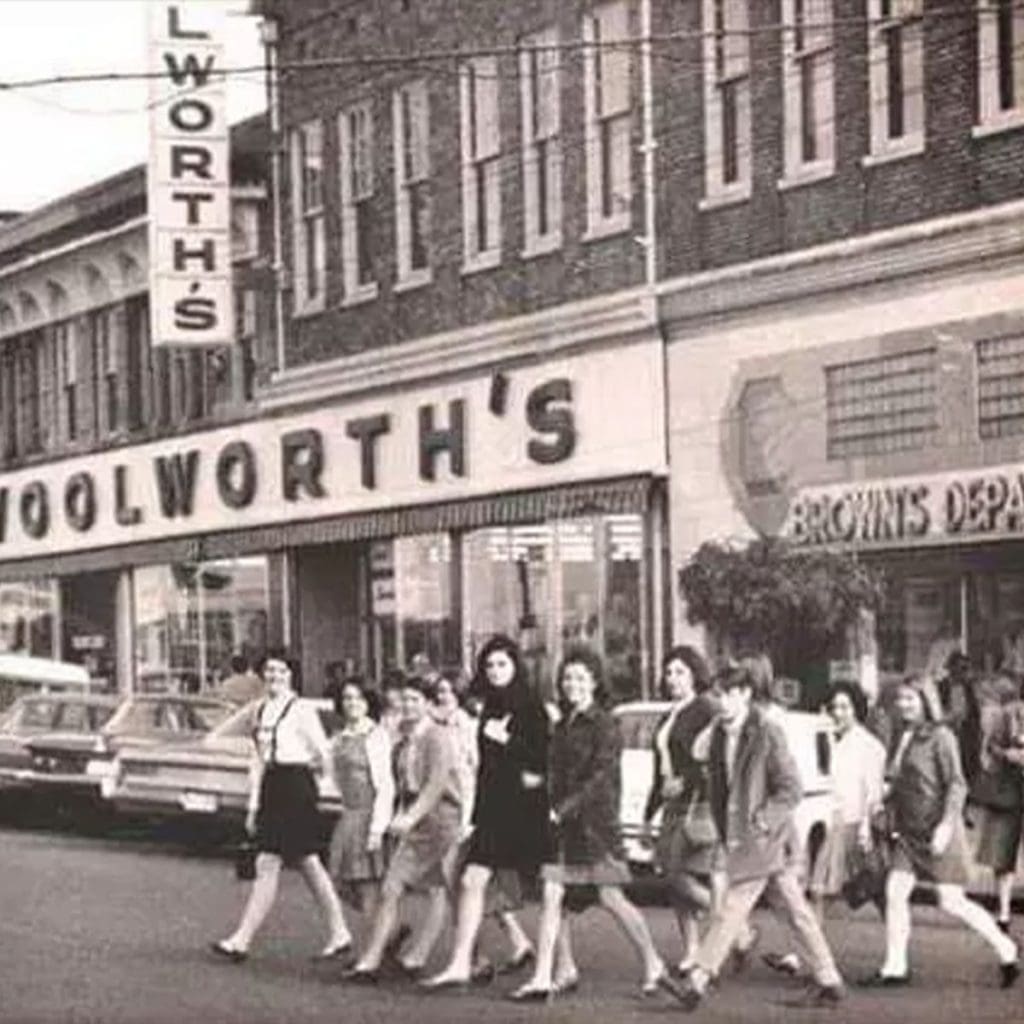Blacks seeking to protest segregation often turned to sit-ins. Popularized in North Carolina in 1960 as a nonviolent way to call attention to the righteousness of their cause, protesters would ask to be served at all-white lunch counters. If refused, the protesters would simply sit quietly and wait. Violence often came next, as angry whites jeered the activists, threw food at them, and even beat them at times. As part of a local effort to desegregate restaurants and shops, Rev. T. Y. Rogers, Jr., and the Tuscaloosa Citizens for Action Committee first attempted to negotiate with downtown merchants. Unsuccessful, they began to picket businesses June 2, 1964, including S.H. Kress Store, F.W. Woolworth, and H&W Drug Store, demanding that blacks be treated in the same manner as whites and be hired in well-paying positions.
Demonstrators endured taunts, threats, and assaults. Segregationists often doused them with “mustard oil,” an acidy mix, which burned their eyes and skin. Between June 2 and June 5 some 60 demonstrators were treated in the hospital for mustard oil burns and air rifle wounds. On June 3, 1964, approximately 30 blacks walked into Kress’s and staged a sit-in at the lunch counter when their request to be served was ignored. When the police arrived, they left peacefully. The next day a similar incident occurred at Wool worth’s. After being turned away from H&W Drugs, black protesters organized a small 100-person march downtown. Despite its peaceful character, the march angered many white segregationists and helped set the stage for “Bloody Tuesday” on June 9, 1964.


